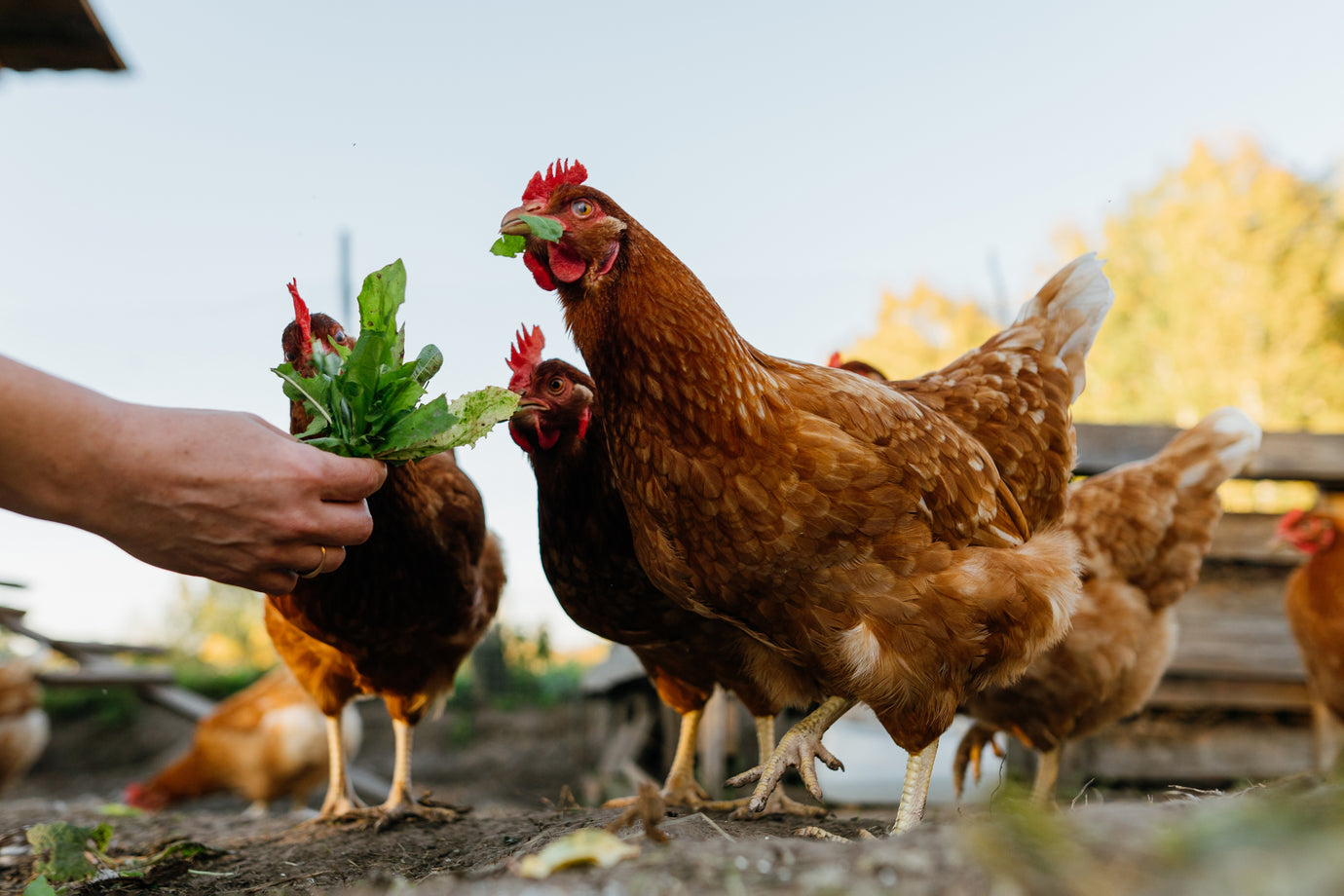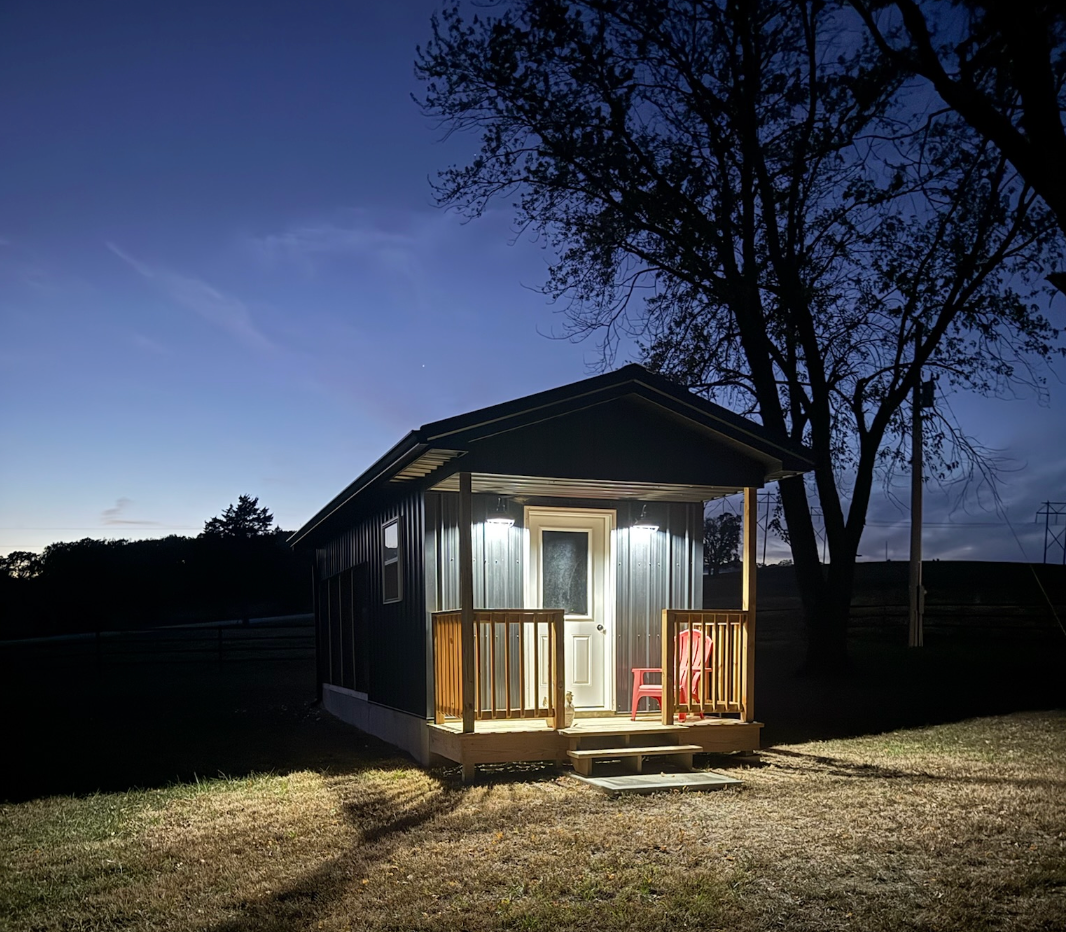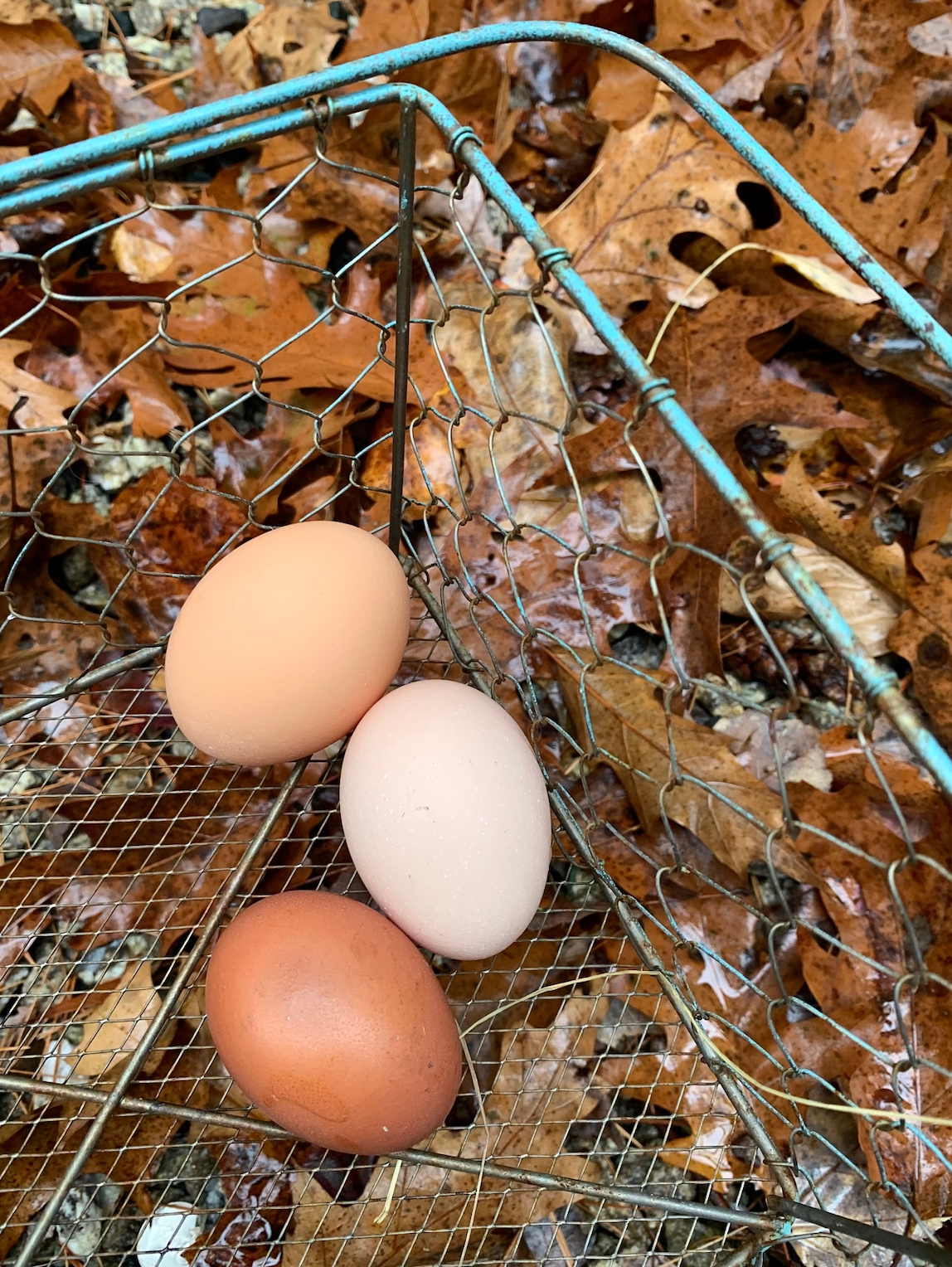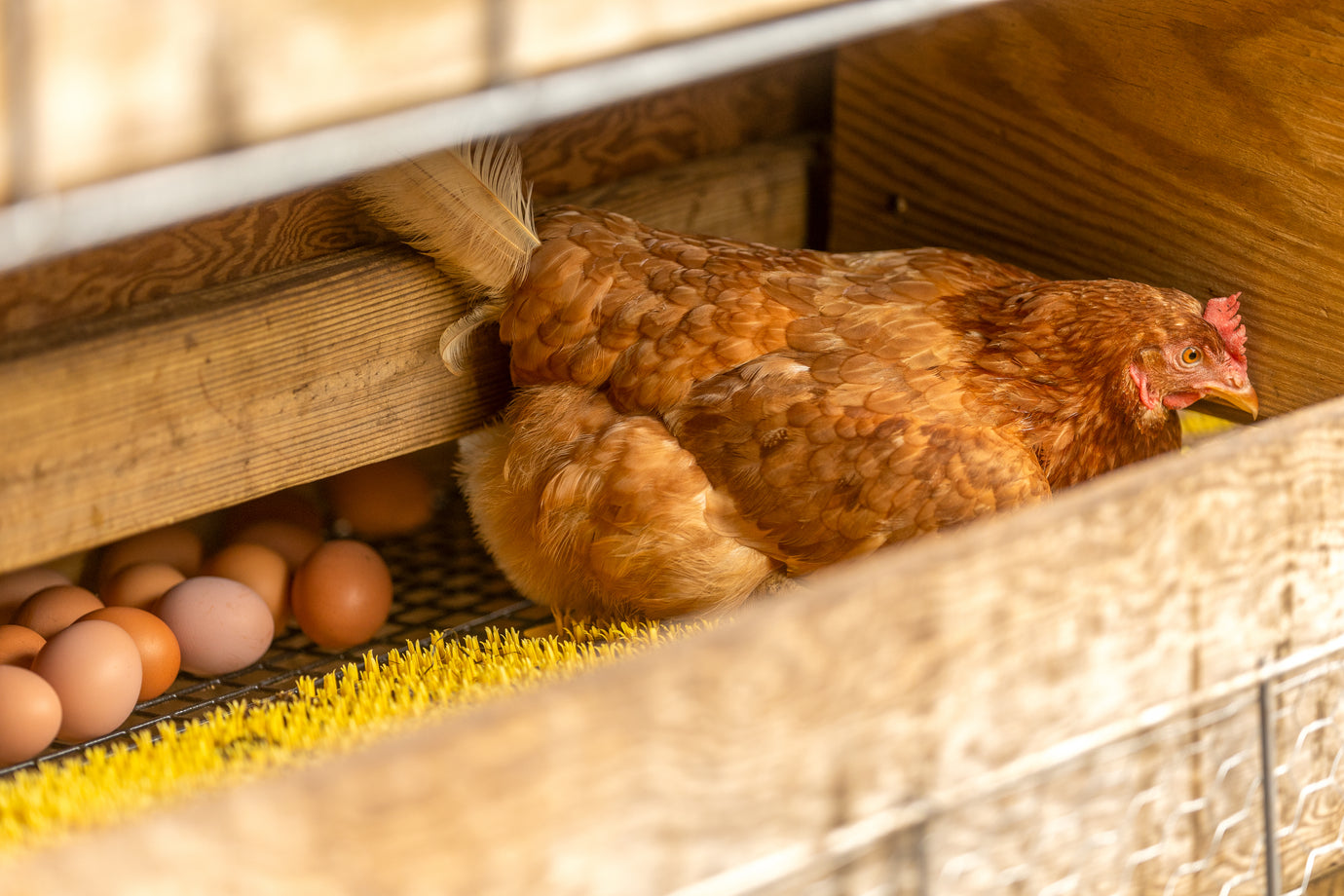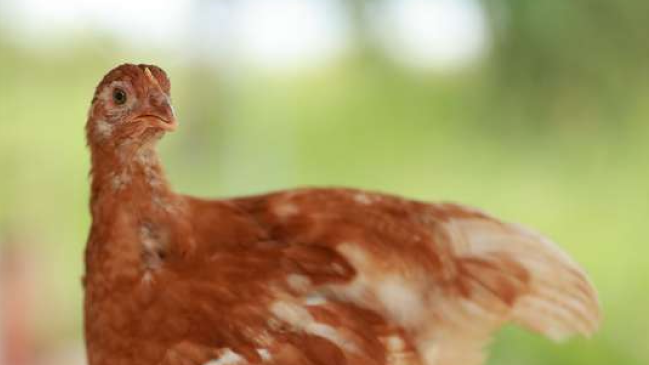Backyard Chicken Keeping 101: Caring for Your Adult Flock

Amazingly, most chickens are fully grown at around 5 to 6 months – and this is about when your ladies will start to lay eggs. If you thought tending chicks was easy, then tending to your grown up hens will be even easier!
Your adult chickens have the same needs as babies: food, water, shelter, and protection from predators. But they really aren’t picky at all. Let’s take a look at some basic chicken needs.
Shelter: The Chicken Coop.
First of all, your chickens are going to need a house! Chicken coops can be made from all kinds of things – pallets, sheds, old cars, or you can purchase a ready-made coop if you prefer. It doesn’t have to be fancy or expensive – just safe!
My first chicken coop was an old shed that I added a chicken door to. I also have a small Tractor Supply chicken coop for my Bantam hens. Your chickens won’t really care if they live in a fancy coop or a boring old shed. But it does need a few things.
Predator Protection
Your coop needs to keep out predators. In my area, raccoons, mink, fisher cats, foxes, owls, and possums love to dine on chicken at night. Rats will sneak into the coop and eat the eggs and even the chickens if they are hungry enough.
So, no matter what your chicken coop is made of, make sure there are no holes or gaps in your coop larger than a quarter. It needs to have some ventilation, so I just put some hardware cloth over a small open window that is away from the roosts.
Space and Roosting
The coop also needs to have some roosts – I find that 2 x 4s work great!
A general rule of thumb is to give each bird 4 square feet of space inside the coop. However, don’t stress if you don’t have that much room – you’ll just need to clean it out more often. You’ll know you don’t have enough room in your coop if they are fighting over space or not going into the coop to roost at night.
A Chicken Door
Most chickens are smart enough to go in the coop to roost when it starts to get dark. Once they all go in, you can lock them up for the night. I use an automatic chicken door that shuts after dark and opens after the sun comes up. But you can do it yourself if you prefer.
Bedding
I always put some bedding in the coop to soak up the manure. You can use chicken shavings, straw, mulch, or even sand. Whatever works for you. Unless you’re using the deep litter method, you’ll need to clean the coop out a couple of times per month (and more if you have a lot of hens in there).
Nest Boxes
You’ll need some nest boxes for your hens to lay in. I have an old cube shelf from Ikea in mine, but you can use large, empty cat litter boxes, small totes, commercially available nest boxes, or something similar. Do place some nest pads, straw, or fresh bedding in your nest boxes to keep the eggs clean and sanitary.
Draft-Free
Full-grown hens do not need heat, so you don’t need to put a heat lamp or heater in the chicken coop. Just make sure it is dry and free of drafts. Spring and summer are the best times to transition chickens from the brooder to the coop, so they’ll have plenty of time to acclimate to being outside before the cold weather sets in.
The Chicken Run
Your chickens can’t stay in the coop all of the time, so they’ll need some space to get into the great outdoors. For some people, allowing their chickens to free-range is the best answer. However, if there are a lot of predators in your area, you may want to build a chicken pen that is connected to the coop.
A chicken pen or run should have 8 square feet of space per chicken. If they are too cramped, illness and parasites can threaten their health. To keep out predators, it should be made of ¼ inch hardware cloth. If you have hawks, consider putting bird netting on top to keep them away. And if you have foxes or coyotes, you may want to install a dig guard all the way around.
Food and Water
Chickens need plenty of fresh water every day. They aren’t picky – a shallow bucket, galvanized tub, or even a dog food dish is perfectly fine as long as they get enough clean, fresh water to drink. My chickens think muddy puddles are a delicious treat! You can supplement their water with Nutriplex-W by Better Flock – this will increase the general health of your flock and support laying! It also helps balance out their diet.
Did You Know? Nutriplex-W increases protein utilization from the feed (enzymes) which leads to a reduction in fecal ammonia? That means a cleaner, less stinky coop!
An average, adult hen will drink about a pint of water per day, but they can drink even more when the temperatures go up. In the summer, keep your water in a shady spot (where the chickens can find it) so it doesn’t get hot. Make sure you completely change their water everyday so it doesn’t grow algae or mosquito larvae. In the winter, if your temps go below freezing, you’ll either need to replace their water several times a day or use a heated waterer to keep it from freezing.
An average-sized adult hen will eat about a quarter cup of feed per day (but always follow direction on feed tag). If you keep your hens penned up in a chicken run, you’ll need to make sure you supply them with plenty of feed! Chances are, they’ll waste some, so you may need to give them some extra. This works out to about a pound and a half of commercial chicken pellets per chicken per week.
To save money on chicken feed, you can give them some table scraps in addition to their feed, such as fruits and vegetables, cereals and grains, and even leftover meat. Just avoid anything spoiled, moldy, or caffeinated. Chickens shouldn’t eat beans, avocado, chicken meat, or chocolate, but chances are, if they aren’t starving, they won’t eat these things if you give them to them by mistake.
You can also let your chickens free range for part or all of the day, depending on the predators in your area. My hens love to forage for bugs, weeds, and small rodents.
While some of these things are great treats for chickens, some novelty or fun foods can be hard for them to digest and create imbalance in the digestive system. This is why it’s always a good idea to use Nutriplex-W in teh water to keep the gut healthy and digesting properly!
General Maintenance
Just like housekeeping, your flock will need a little general maintenance to keep them happy and healthy. First, try to collect your eggs everyday around the same time. This will ensure you don’t miss any and end up with some bonus baby chicks or partially developed eggs.
Second, you’ll need to clean out the coop regularly. A weekly sweep out seems to be the easiest. You can compost the leftover bedding and then replace it with fresh.
Keep an eye out for any signs of stress or illness in your flock. Any signs of lethargy, dropping combs, blood in the manure, or changes in behavior can be a sign of illness or injury. If you suspect your chickens or not feeling their best, you can supplement their feed with Avaplex to get their immune systems back on track. And don’t be afraid to call your local farm vet.
Did you know? Chickens are highly intelligent, can recognize humans and other chickens, and can learn to do tricks?
Be Confidant!
If you are anxious about raising new chickens – don’t be! Remember to use your common sense and treat them as you would any other pet. Make sure their basic needs are met: food, shelter, water, and protection from predators.
Always watch the behavior of your flock. If they are fighting, weak, lethargic, or not roosting, chances are – their needs aren’t being met. If they have an illness or stress that needs to be treated, Avaplex can help!
If they are content, scratching, clucking, and laying well – you’ve got a flock of healthy and well-fed chickens!


